
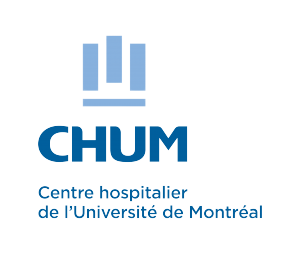

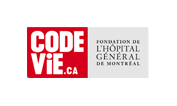
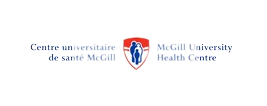

- Fr









ELIXR 2023 brings together the top experts in early-stage lung cancer from a number of disciplines across the globe.

Dr. Tina Cascone is an assistant professor, physician-scientist in the Department of Thoracic/Head and Neck Medical Oncology at the University of Texas MD Anderson Cancer Center in Houston, TX. She received her degree in medicine (summa cum laude) from the University of Campania Luigi Vanvitelli in Naples, Italy. She earned her doctorate degree in Medical and Surgical Oncology and Clinical Immunology at the same university and completed her postdoctoral studies at MD Anderson Cancer Center where she studied the impact of antiangiogenic therapy on the tumor microenvironment. She completed her residency training in internal medicine at the Barnes-Jewish Hospital/Washington University School of Medicine in St. Louis, MO, and her medical oncology fellowship at MD Anderson Cancer Center. In 2017, Dr. Cascone became an instructor in the Advanced Scholar Program at MD Anderson Cancer Center, and in 2018 joined the faculty as a tenure-track assistant professor in the Department of Thoracic/Head and Neck Medical Oncology.
Dr. Cascone leads a basic and translational research laboratory that houses state-of-the-art equipment acquired through a University of Texas Rising Stars Award. Dr. Cascone’s research program is focused on identifying immune-mediated mechanisms of tumor response and resistance to immune checkpoint therapies. She uses information generated from preclinical models and patient-derived samples to develop treatment strategies that may improve the cure rates of patients with operable non-small cell lung cancer.
Dr. Cascone is the principal investigator on investigator-initiated and global randomized clinical studies evaluating the role of perioperative immune-based therapies for lung cancer patients. She also leads a comprehensive immunogenomic translational effort to study the dynamic changes in immune cell phenotypes on therapy and to identify biomarkers of therapeutic benefit. She is a past recipient of an ASCO Young Investigator Award, ASCO Career Development Award, and an ASCI Young Physician Scientist Award. Dr. Cascone is a principal investigator on an MPI NIH/NCI R01 grant award and on a multi-institutional research effort that recently received a Mark Foundation Endeavor Award.
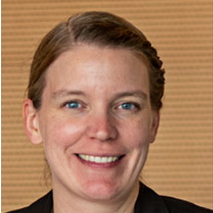
Dr. Tricia Cottrell is a thoracic pathologist at Queen’s University and a Senior Investigator with the Canadian Clinical Trials Group. She completed her MD/PhD, Anatomic Pathology Residency, and post-doctoral fellowship at Johns Hopkins University. Dr. Cottrell’s research focuses on predictive biomarkers and pathologic response assessment in immunotherapy clinical trials.
Dr. Cottrell published the first characterization immune-mediated tumor regression following neoadjuvant anti-PD-1 therapy. The system is being validated as a potential standardized approach for quantifying pathologic response to neoadjuvant therapy across solid tumour types.
Mentored by Drs. Janis Taube and Alex Szalay, Dr. Cottrell is a founding member of the AstroPath platform team. The platform is a rigorously optimized and validated end to end workflow for whole slide multiplex immunofluorescence. Dr. Cottrell’s lab is funded by OICR and CIHR to use AstroPath to identify predictive biomarkers in tumours from patients treated with immunotherapy, including non-small cell lung carcinoma and malignant pleural mesothelioma.
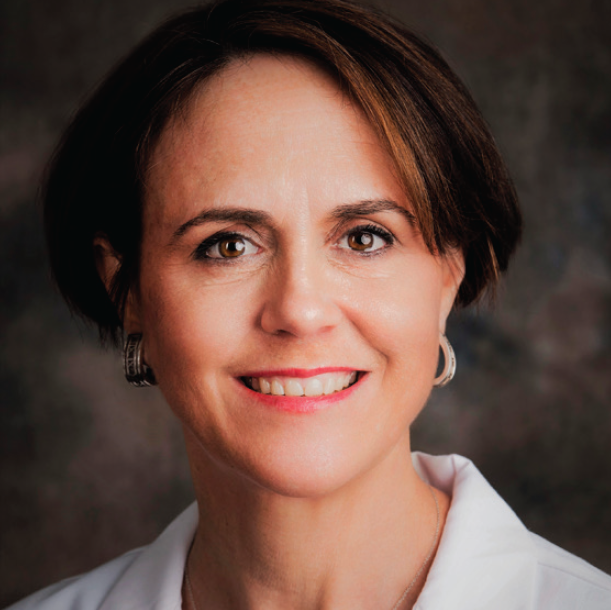
Dr. Jessica Donington is Professor of Surgery and Chief of Thoracic Surgery at the University of Chicago. She obtained her bachelor’s degree from the University of Michigan and her medical degree from Rush University. She completed surgical training at Georgetown University, cardiothoracic training at the Mayo Clinic, and a surgical oncology fellowship in the Surgical Branch of the NCI. She was on faculty at Stanford and NYU prior to accepting her current position in 2018.
She has expertise in multi-modality therapy for locally advanced lung cancer, clinical trials in lung cancer, and treatment options for medically high-risk patients with lung cancer. She is the president of the Western Thoracic Surgical Association, the surgical chair for the NRG Oncology Lung Group, and a Director for the American Board of Thoracic Surgery. She is a past president of the New York Society for Thoracic Surgery and the Women in Thoracic Surgery.
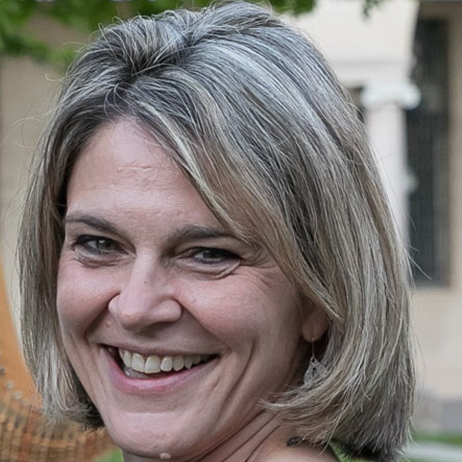
Dr. Corinne Faivre-Finn is a Professor of Thoracic Radiation Oncology at the University of Manchester and Honorary Consultant Clinical Oncologist. She trained in Paris and moved to the UK in 1998. She has numerous professional roles including radiotherapy research lead for Manchester Cancer Research Centre and the CRUK Lung Cancer Centre and Early NSCLC Chair of EORTC Lung Group.
Professor Faivre-Finn is also an active member of several national and international research committees including the NCRI Clinical & Translational Radiotherapy Research Working Group (CTRad), IASLC Advanced Radiotherapy Committee and the ESTRO Clinical Committee. She is Principal Investigator for numerous trials studying radiotherapy in lung cancer and an author of guidelines on the management of patients with lung cancer (ESMO, BTS, EORTC, ERS, ASTRO). She has authored >280 papers including 7 practice changing studies.
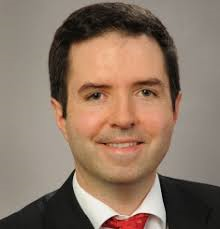
Dr. Patrick Forde treats patients with lung cancer, mesothelioma, and other thoracic cancers. He completed training in internal medicine and oncology in Ireland prior to undertaking a further fellowship at Johns Hopkins. He is currently Co-Director of the Division of Upper Aerodigestive Malignancies in the Department of Oncology at Johns Hopkins and directs the multidisciplinary Thoracic Oncology Clinical Research Program.
He has led development of a clinical-translational research program focused on the immuno-oncology of upper aerodigestive malignancies. Dr. Forde's research examines the role of immunotherapy for mesothelioma and lung cancer and his work has led to the development of several ongoing phase 3 trials. In 2022, his work over several years, published in the New England Journal of Medicine, led to the FDA approval of neoadjuvant chemo-immunotherapy for the treatment of surgically operable lung cancer.
Dr. Forde serves as principal investigator for the thoracic cancer immunobiology biospecimen repository protocol at Johns Hopkins. He is focused on providing compassionate, state-of-the-art care for his patients in conjunction with a team of oncology specialist nurses, nurse practitioners, and dedicated staff.
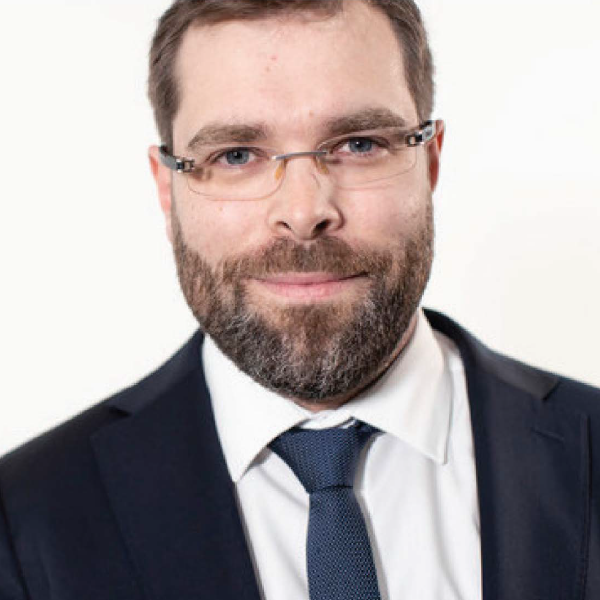
Dr. Nicolas Girard is a pneumologist specializing in thoracic oncology, for the treatment of patients with lung cancer or rare thoracic cancers. He is experienced in the treatment of thymic tumors—thymomas and thymic carcinomas—as part of his work in the RYTHMIC network. He is domain leader for rare thoracic cancers for the European Reference Network EURACAN.
Dr. Girard is involved in several clinical and translational research projects aiming at improving the treatment of these cancers. He is the Président of the International Thymic Malignancy Interest Group.
He is Professor of Respiratory Medicine at Versailles Saint Quentin University. He is the Head of the Curie-Montsouris Thorax Institute.
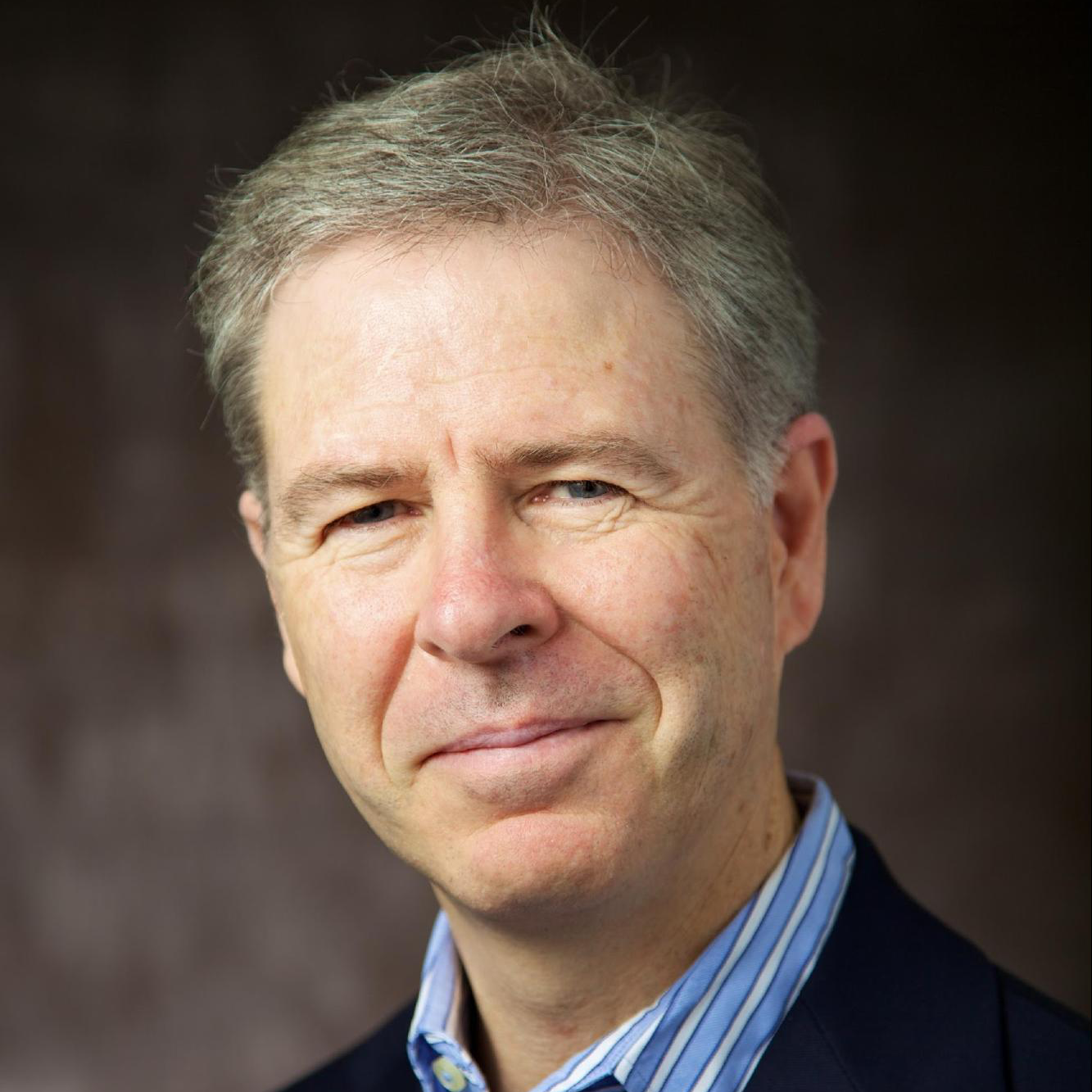
Dr. Glenwood Goss graduated from the University of Witwatersrand, Johannesburg, South Africa and completed his post-graduate training at the Royal Marsden Hospital in London, England. He is a Fellow of the Royal College of Physicians and Surgeons of Canada. Currently, he is Professor of Medicine at the University of Ottawa and Senior Clinician Investigator, Ottawa Hospital Research Institute. He is the past Head of Medical Oncology at the Ottawa Hospital, University Chair of the Division of Medical Oncology and Medical Director of Clinical and Translational Research at The Ottawa Hospital Cancer Centre. He is a founding member of the Canadian Association of Medical Oncologists and served as President from 1999-2001. From 2007-2019 he was Chair, Thoracic Oncology Site Committee, Canadian Cancer Trials Group (CCTG/NCIC), a member of the US Co-operative Group chairs committee and member of the Thoracic Malignancy Steering Committee, NCI (US), National Institute of Health.
He has published widely in his research areas of interest which are cancer drug development and thoracic oncology, with over 360 publications and more than 180 peer reviewed manuscripts. His work continues to be supported by multiple peer reviewed research grants. He has served on multiple medical journal editorial boards including the Journal of Medical Oncology and chaired the publication committee of the International Association for the Study of Lung Cancer. Invited as an external reviewer of multiple international clinical research programs including National Cancer Institute (US) Cancer Therapeutics and Evaluation Program and the Lung Group, National Cancer Research Groups, United Kingdom of Great Britain. His contribution to patient care has been acknowledged by the receipt of multiple “Guardian Angel Awards” from his patients and his academic work by multiple national and international awards including the “Lifetime Achievement Award” from the Canadian Lung Cancer Conference.
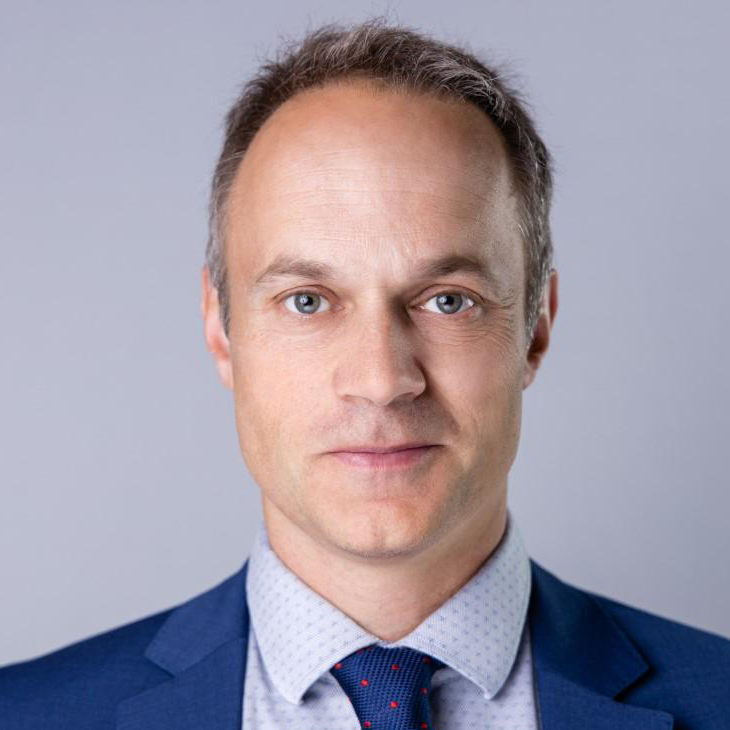
Dr. Philippe Joubert completed a PhD in pathology and immunology at the Meaksin-Christie laboratories. He obtained his MD degree at University of Montreal and completed his residency in anatomic pathology at Laval University, followed by a post-doctoral fellowship in thoracic pathology at Memorial Sloan-Kettering Cancer Centre (2012-2013).
Dr. Joubert is currently an associate professor at Laval University and a thoracic pathologist at Institut de Cardiologie et de Pneumológie de Québec. He is a member of the International Association for the Study of Lung Cancer (IASLC) staging and pathology committees, and the co-chair of the IASLC ground-glass committee. He is also the co-director of the cancer-environment-genetics axis of the Québec Respiratory Health Research Network.
Dr. Joubert was responsible for a section of the Classification of Thoracic Tumors by the World Health Organization, and a contributor to the IASLC Molecular Atlas and the IASLC Atlas of Diagnostic Immunohistochemistry. His research program revolves around th identification fo diagnostic and predictive biomarkers based on genetics and tumor micro-environment profiles.
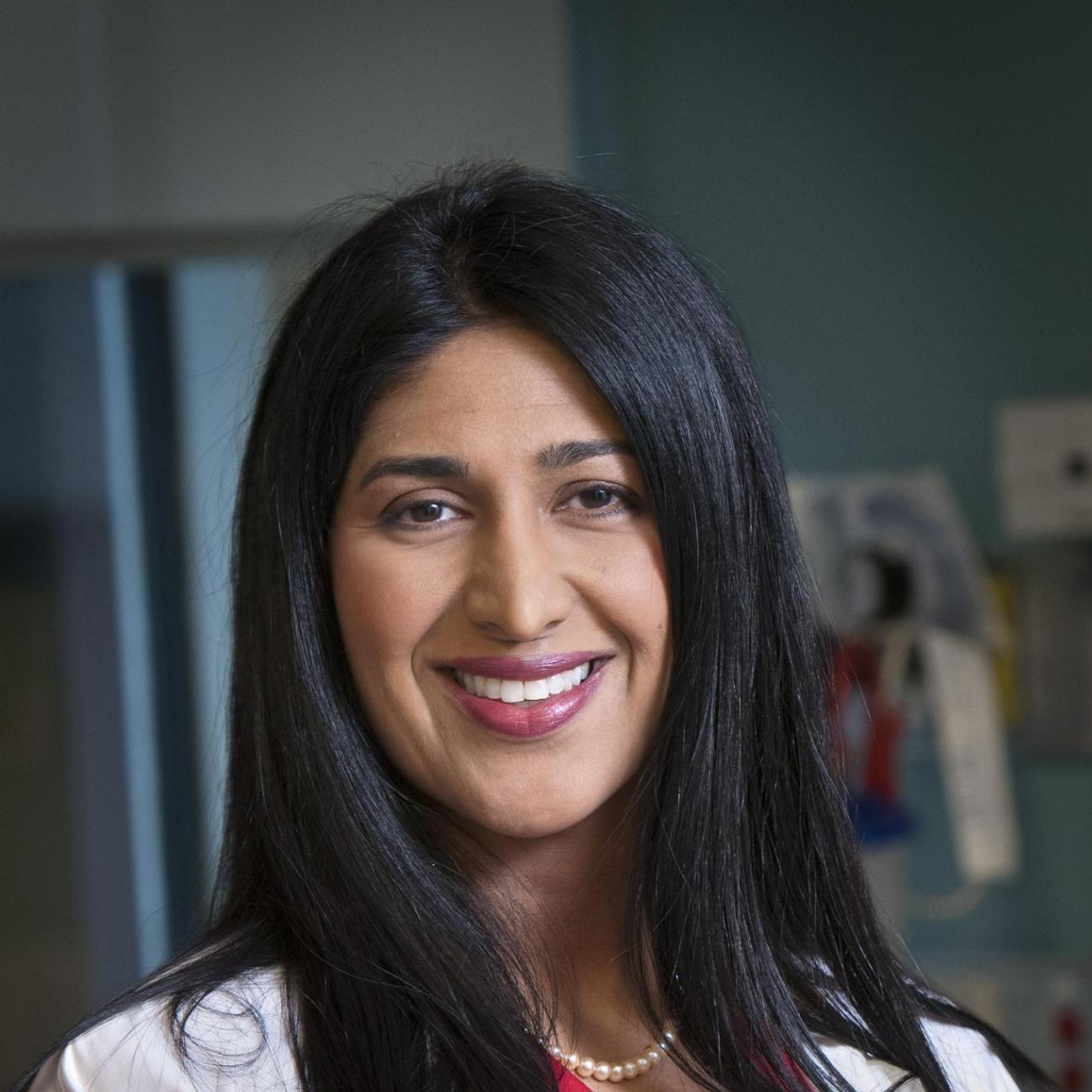
Dr. Natasha Leighl leads the Thoracic Medical Oncology Group at the Princess Margaret Cancer Centre, and is Professor in the Department of Medicine, and Adjunct Professor in the Institute of Health Policy, Management and Evaluation at the University of Toronto. She holds the OSI Pharmaceuticals Foundation Chair in Cancer New Drug Development through the Princess Margaret Cancer Foundation. She has published over 300 peer-reviewed papers, has held (as principal or co-investigator) over $600 million in peer-reviewed grant funding, and has mentored many oncology trainees that have gone on to leadership roles in oncology around the world. Recently, she was awarded the American Society of Clinical Oncology Excellence in Teaching Award (2019).
After receiving her MD from the University of Toronto, Canada, Dr. Leighl completed residencies in internal medicine at the University of Calgary and in medical oncology at the University of Toronto. She subsequently completed a Fellowship in Thoracic Oncology with Dr. Frances Shepherd at the Princess Margaret Hospital in Canada, a Fellowship in Clinical Oncology with Prof. Martin Tattersall at the University of Sydney in Australia, and received her Masters in Medical Science (MMSc) in Clinical Epidemiology at the University of Newcastle, Australia.
Dr Leighl’s main interest is in developing new treatments in lung cancer and improving lung cancer diagnostics. She is involved in clinical studies of novel agents for the treatment of thoracic cancers, has led several international and cooperative group studies in lung cancer and has served as a member of the Lung Disease Site Group Executive of the Canadian Cancer Clinical Trials Group. She was Co-Chair of the CCTG Committee on Economic Analysis, Congress Co-President of the 2018 World Conference in Lung Cancer, and serves on multiple committees including the ASCO Thoracic Guidelines Advisory Group, is co-section editor of The Oncologist and Current Oncology, an editorial board member of the Journal of Thoracic Oncology, British Journal of Cancer, a member of the IASLC Quality and Value Committee, on the Scientific Advisory Board of the Lung Cancer Foundation of America, and was recently elected to the Board of Directors of the Americas Health Foundation. Previously she served as Web Editor of the Journal of Thoracic Oncology, on the editorial board of the Journal of Clinical Oncology, the Royal College of Physicians & Surgeons of Canada Medical Oncology Examination Board, and is Past President of Lung Cancer Canada.
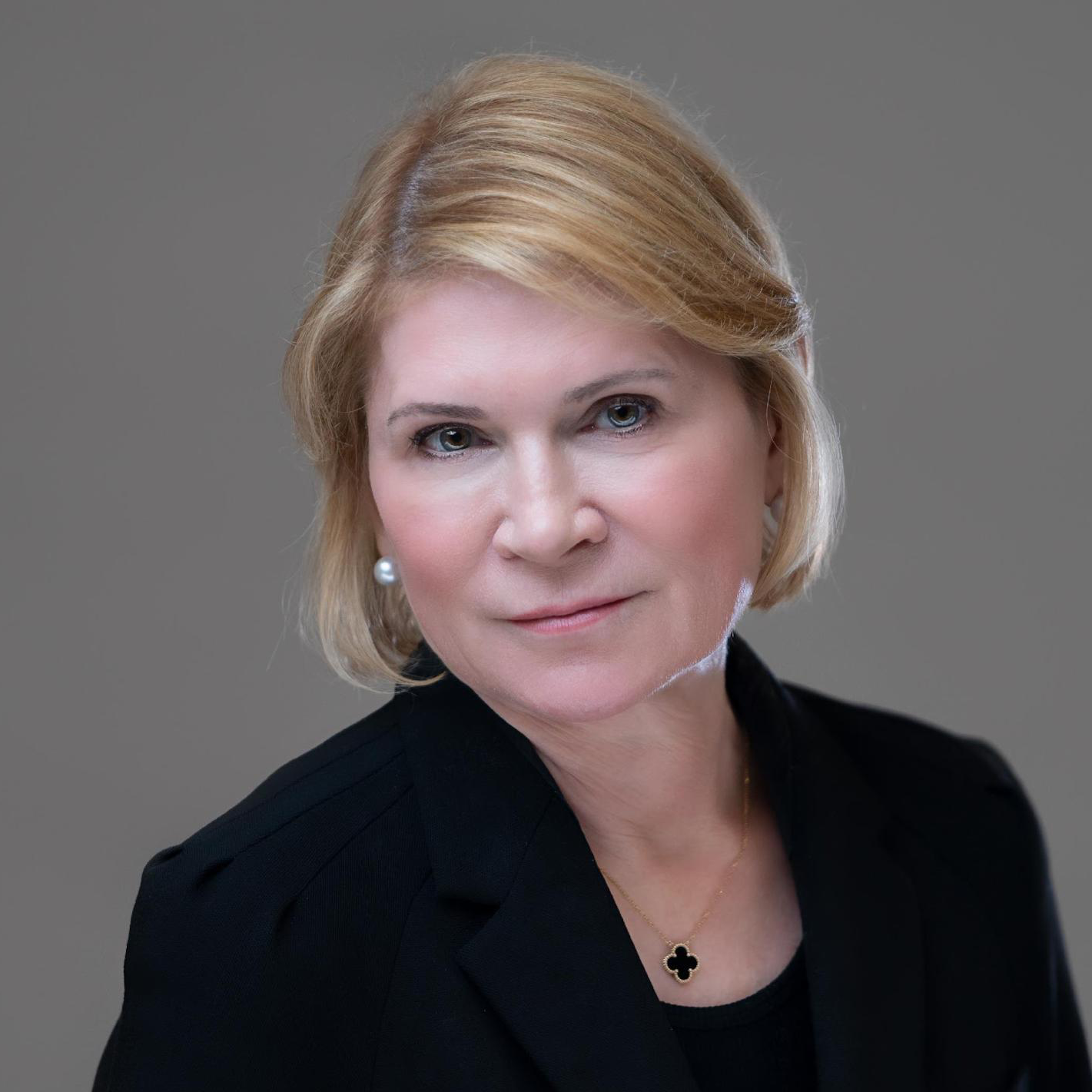
Dr. Barbara Melosky is a Professor of Medicine at the University of British Columbia and a Medical Oncologist in Vancouver at BC Cancer. She graduated from medical school at the University of Manitoba and did a residency in internal medicine and an oncology fellowship at the University of British Columbia. Dr. Melosky specializes in the field of thoracic malignancies.
Dr. Melosky sits on the Executive Lung Site Committee for Canadian Clinical Trials Group (CCTG). She chairs the annual Canadian Lung Cancer Conference attended by over 450 participants, for the last 23 years.
Dr. Melosky is proud to have built the British Columbia Lung Cancer Biobank which is actively used for research for all interested. She is published extensively and is considered a national and international expert in thoracic malignancies.
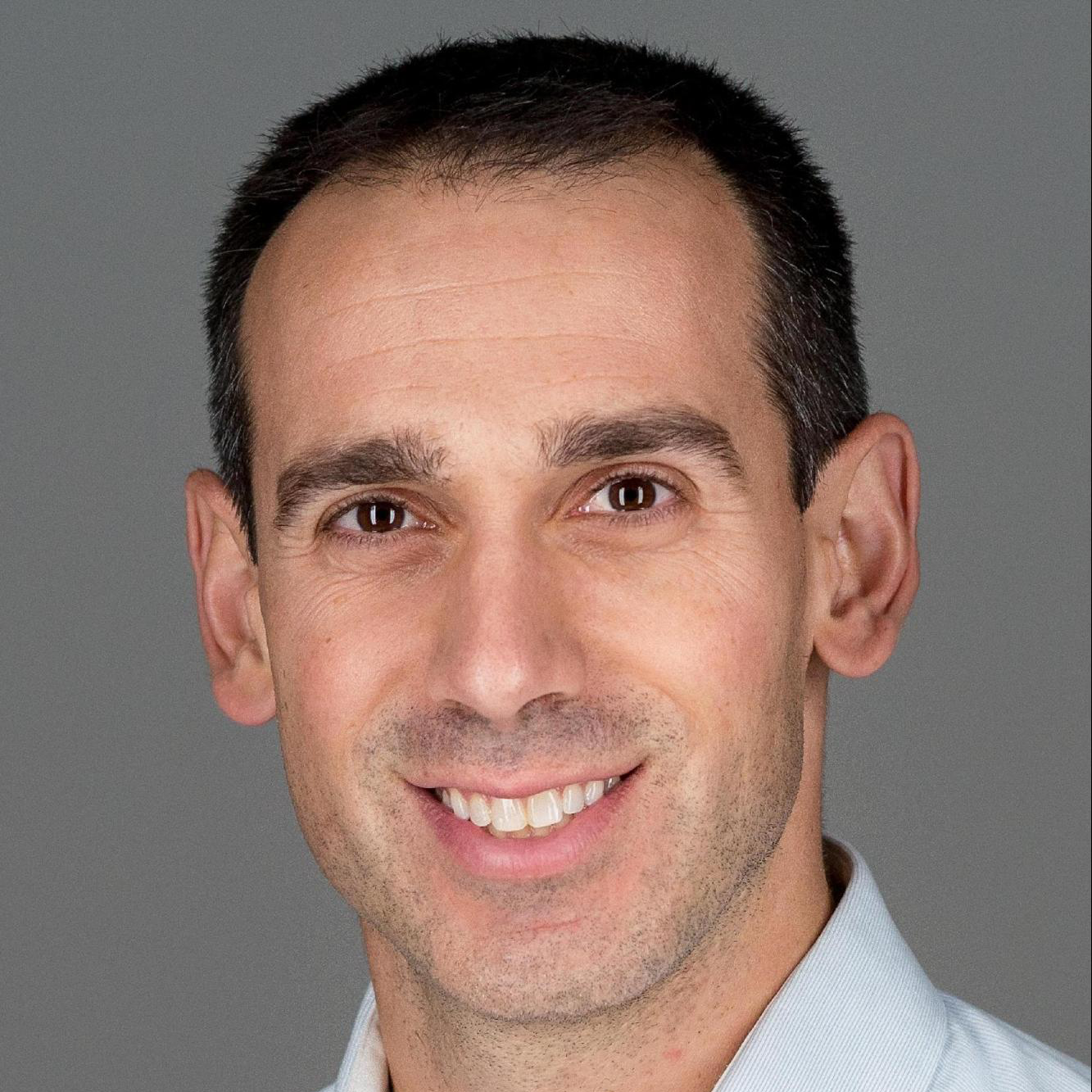
Dr. David Palma, MD, PhD is a Professor and Radiation Oncologist at Western University in London, Canada. He holds an MD from the University of Western Ontario, a Master’s Degree in Epidemiology from the Harvard School of Public Health, and a PhD from the VU University in Amsterdam. He has led several international randomized trials in radiation oncology, and he is the chair of the Canadian Pulmonary Radiotherapy Investigators (CAPRI) group. He is the author of the bestselling book Taking Charge of Cancer: What You Need to Know to Get the Best Treatment.
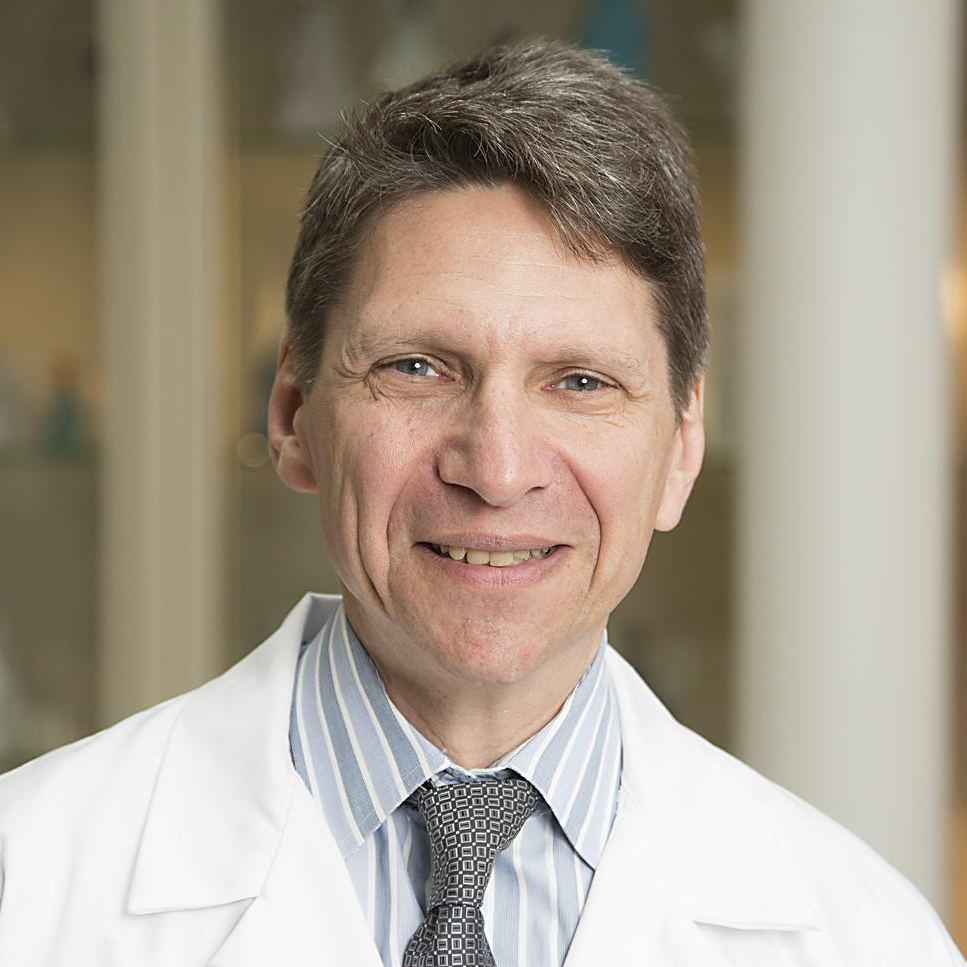
Dr. Drew Pardoll is an Abeloff Professor of Oncology, Medicine, Pathology and Molecular Biology and Genetics at the Johns Hopkins University, School of Medicine. He is the Director of the Bloomberg~Kimmel Institute for Cancer Immunotherapy and Director of the Cancer Immunology Program at the Sidney Kimmel Comprehensive Cancer Center at Johns Hopkins.
Dr. Pardoll has published over 300 papers as well as over 20 book chapters on the subject of T cell immunology and cancer vaccines. Over the past two decades, Dr. Pardoll has studied molecular aspects of dendritic cell biology and immune regulation, particularly related to mechanisms by which cancer cells evade elimination by the immune system. Dr. Pardoll discovered one of the two ligands for the PD-1 inhibitory receptor and leads the Hopkins cancer immunology program that developed PD-1 pathway-targeted antibodies, demonstrating their clinical activity in multiple cancer types.
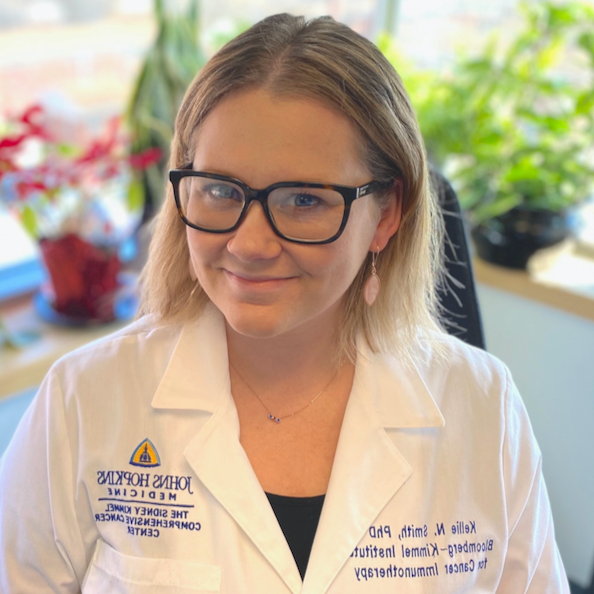
Dr. Kellie Smith, a Baltimore, MD native, completed her doctoral work at the University of Pittsburgh School of Medicine under the direction of Dr. Charles R. Rinaldo with a focus on T cell immunology and immunotherapy. During her fellowship training at Johns Hopkins, she worked under the mentorship of Dr. Drew M. Pardoll identifying the correlates of response to anti-PD-1 immunotherapy in patients with multiple tumor histologies with a specific emphasis on early and advanced-stage non-small cell lung cancer. She joined the faculty in early 2016 and has since collaborated with many clinicians within Johns Hopkins and at outside institutions on immunotherapy clinical trials aimed at improving treatment options, preventing disease recurrence, and understanding the predictors of response to treatment in both early and advanced-stage disease.
Dr. Smith’s group has developed a novel patent-pending technique to detect and monitor anti-tumor T cells using a simple liquid biopsy approach. This technique, termed MANAFEST (mutation associated neoantigen functional expansion of specific T-cells), is being used in 8 clinical trials and at 5 different research institutions and biotech companies to monitor responses to mutation associated neoantigens, endogenous retroviruses, tumor associated antigens, and viral antigens. This approach has been used to identify neoantigen-specific responses in lung cancer patients with acquired resistance to checkpoint blockade and in colorectal cancer patients with durable clinical benefit to anti-PD-1. More recently, this approach was able to show for the first time that neoantigen-specific T cells are amplified in the periphery following neoadjuvant PD-1 blockade and that these responses may facilitate tumor regression and prevent relapse after surgical resection. Ongoing work includes linking the MANAFEST assay with single cell sequencing technologies to ascertain the intratumoral phenotype of anti-tumor T cells, with a specific interest in how checkpoint blockade treatment regimens augment anti-tumor immunity. This work will elucidate prognostic biomarkers of response and resistance to checkpoint blockade and will help stratify patients most likely to benefit from these treatments.
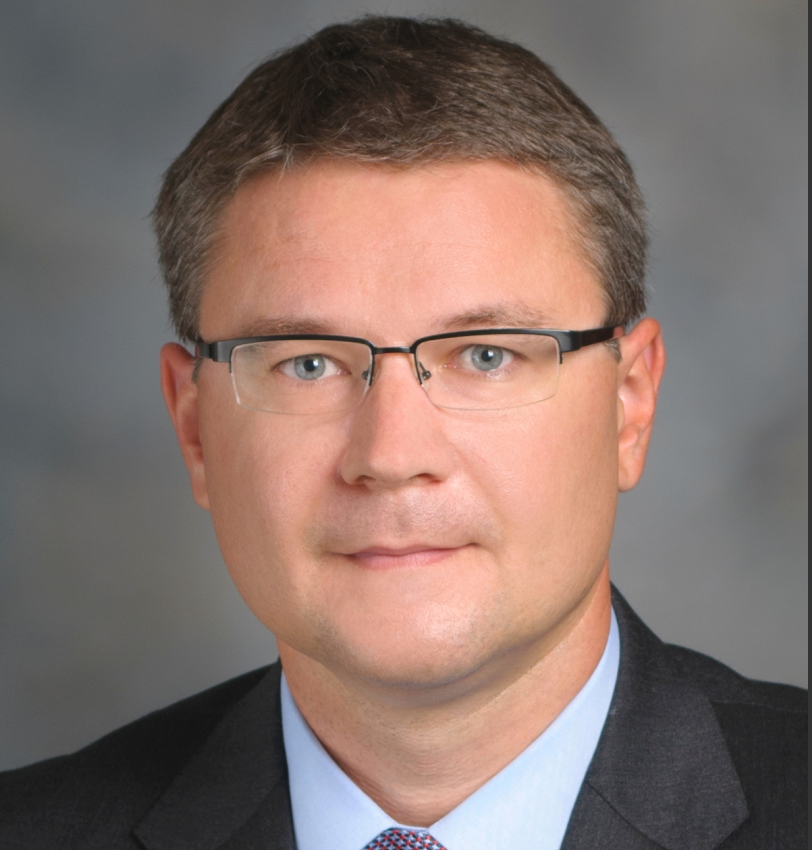
Dr. Boris Sepesi is a thoracic surgeon specializing in thoracic surgical oncology with special interest in multimodality therapy of surgically operable non-small cell lung cancers. His research interests include clinical trials of novel neoadjuvant strategies for non-small cell lung cancer, biomarker discovery, as well as studies of modifying factors for therapeutic responses.
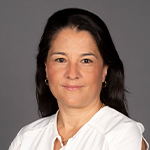
Dr. Paula Figueroa established herself as a thoracic surgeon dedicated to research. She has an extensive record of publications including an impressive body of work on thoracic surgery using innovative uniportal VATS approaches for lung cancer.
Dr. Ugalde serves on the IASLC Board of Directors since 2021, as well as being a member of the American Association of Thoracic Surgery (AATS), Society of Thoracic Surgeons (STS). Additionally, Dr. Ugalde is the acting Chair of International Affairs for the Women in Thoracic Surgery society.
In the fall of 2021, Dr. Ugalde joined the Division of Thoracic and Cardiac Surgery at Brigham and Women’s Hospital in Boston, MA as an associate Thoracic Surgeon. She is also a Member of the Faculty at Harvard Medical School, as well as a part-time staff member of the Dana-Farber Cancer Institute.